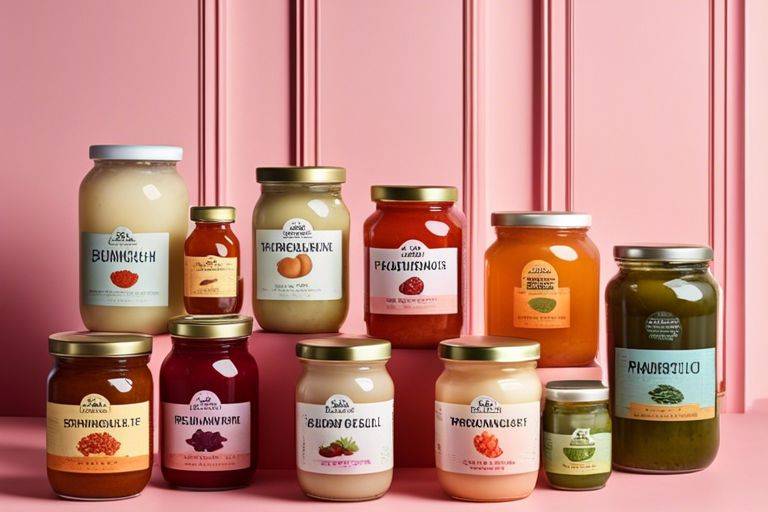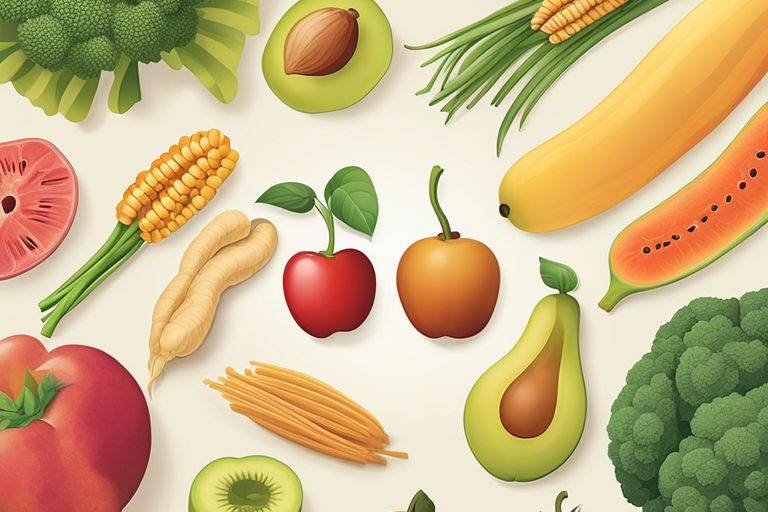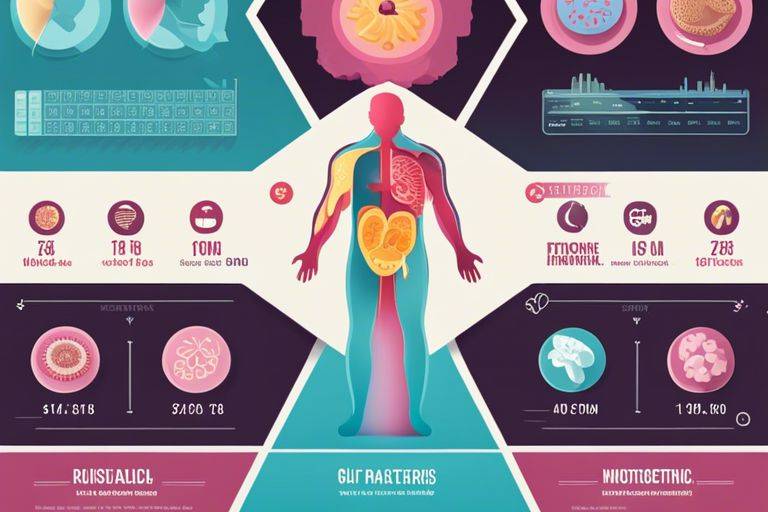There’s a growing trend towards probiotic supplements for gut health, but let me tell you why fermented foods are my top choice. As far as nurturing your gut flora, fermented foods offer a natural source of probiotics, live enzymes, and a wider variety of beneficial bacteria strains than many supplements. Plus, fermented foods are often more affordable, sustainable, and have been part of traditional diets for centuries. Join me in embracing the delicious world of fermented foods for a healthier gut and a happier you.
Key Takeaways:
- Fermented foods provide a wider variety of probiotic strains: Fermented foods contain a diverse range of beneficial bacteria strains, compared to many probiotic supplements that only offer a few strains.
- Fermented foods are more natural: Fermented foods are a natural source of probiotics, as they undergo a fermentation process using beneficial bacteria, while probiotic supplements are often created in a lab.
- Fermented foods offer additional nutrients: Fermented foods provide not only probiotics but also important nutrients like vitamins, minerals, and enzymes which can further support gut health.
- Fermented foods are more cost-effective: Fermented foods can be made at home or purchased at a fraction of the cost of probiotic supplements, making them a more budget-friendly option.
- Fermented foods support overall digestive health: Consuming fermented foods regularly can help maintain a healthy balance of gut bacteria, support digestion, and boost the immune system.
- Fermented foods are easily incorporated into diet: Adding fermented foods like yogurt, sauerkraut, kimchi, and kefir to meals or snacks is a simple way to incorporate probiotics into your daily diet.
- Fermented foods can be more easily tolerated: Some individuals may experience digestive discomfort or adverse reactions from probiotic supplements, while fermented foods are often gentler on the digestive system.
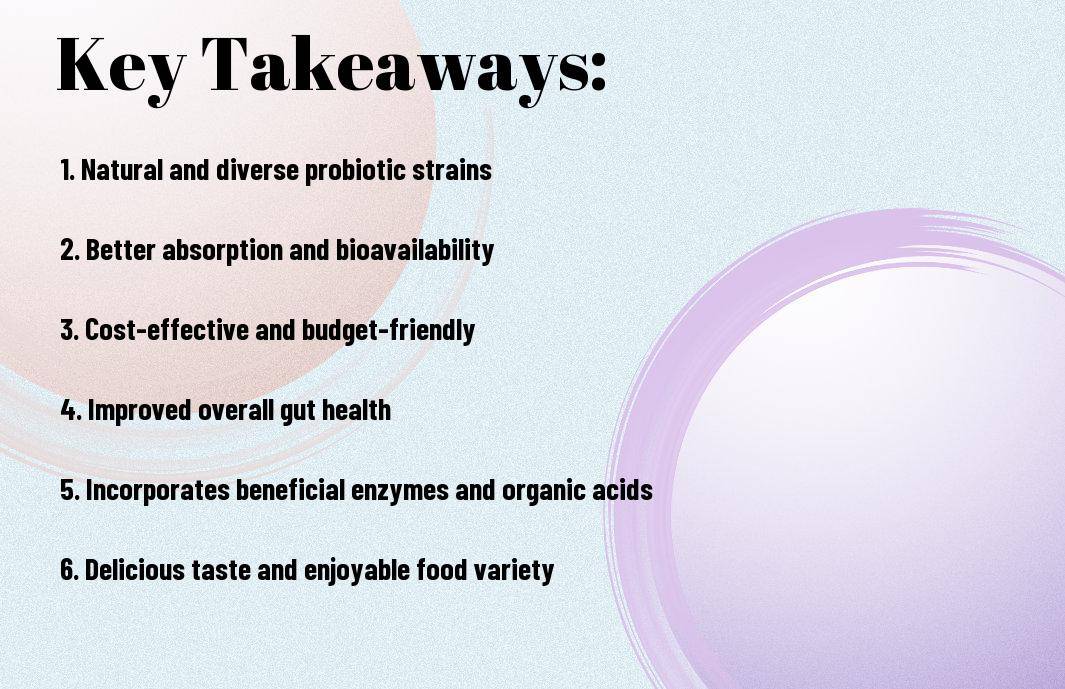
The Rise of Probiotics Supplements
The Allure of Quick Fixes
A quick fix is always tempting when it comes to health issues. Probiotics supplements promise to quickly restore your gut health without much effort on your part. The allure of popping a pill and being done with it is hard to resist.
The Promise of Easy Gut Health
Quick and easy solutions are often sought after in today’s fast-paced world. The promise of probiotics supplements is a simple way to improve your gut health, and with so many options available, it’s easy to see why they have become popular. However, it’s important to consider the quality and efficacy of these supplements.
The Limitations of Probiotics Supplements
If you’ve been following my blog, you know that I am a firm believer in the power of fermented foods over probiotic supplements. Let me share with you some of the limitations of relying solely on probiotics supplements for your gut health.
Unregulated Industry
To start, the probiotics supplement industry is largely unregulated. This means that the quality and effectiveness of these products can vary widely. Without strict regulations in place, you may not be getting the beneficial bacteria strains you think you are, potentially rendering them useless for your gut health.
Lack of Scientific Evidence
Probiotics supplements often lack robust scientific evidence to support their health claims. While there is some research backing certain strains for specific conditions, the overall evidence is still lacking. Without concrete scientific support, it’s challenging to know if these supplements will truly benefit your gut microbiome.
A 2019 study published in the journal Cell found that while some individuals’ gut microbiota rapidly responds to probiotic intervention, others may see no change or even a negative impact. This variability underscores the need for more research in this area.
Potential Interactions and Side Effects
One concern with probiotics supplements is the potential for interactions with other medications or causing side effects. While generally considered safe for healthy individuals, those with compromised immune systems or underlying health conditions should exercise caution when using probiotics. It’s crucial to consult with your healthcare provider before starting any new supplement regimen.
Another study published in the journal Nature highlighted that excess consumption of probiotics supplements may lead to an imbalance in the gut microbiota, potentially resulting in digestive issues or other health complications.
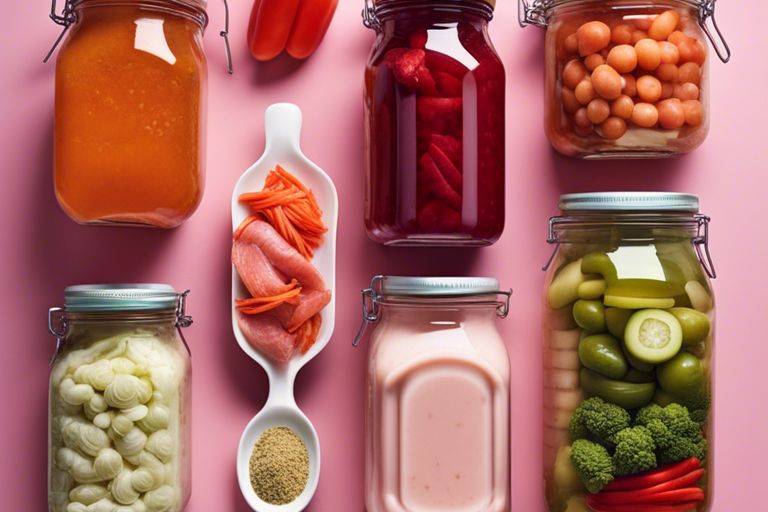
The Power of Fermented Foods
Ancient Wisdom
All my life, I have been fascinated by the profound wisdom of ancient cultures when it comes to food and health. Fermented foods have been a staple in traditional diets for centuries, revered for their ability to support gut health and overall well-being.
Diversity of Microbes
Any health enthusiast knows that a diverse microbiome is key to good health. Fermented foods offer a wide array of beneficial microbes that can populate and enrich our gut, supporting digestion, immunity, and mental health.
To truly appreciate the power of fermented foods, consider the variety of microbes they provide. From lactobacillus to bifidobacterium, each strain plays a unique role in maintaining a balanced gut flora. This diverse community of bacteria can help prevent pathogenic species from taking over, supporting a resilient and healthy microbiome.
Synergistic Benefits
For me, the beauty of fermented foods lies in their synergistic benefits. Unlike probiotic supplements that offer a limited number of strains, fermented foods provide a complex matrix of nutrients, enzymes, organic acids, and live cultures that work together to enhance digestion and nutrient absorption.
This intricate blend of components creates a holistic approach to gut health, fostering an environment where beneficial bacteria can thrive while effectively combating harmful pathogens. By including a variety of fermented foods in your diet, you can tap into the synergistic benefits that nature has perfected over centuries.
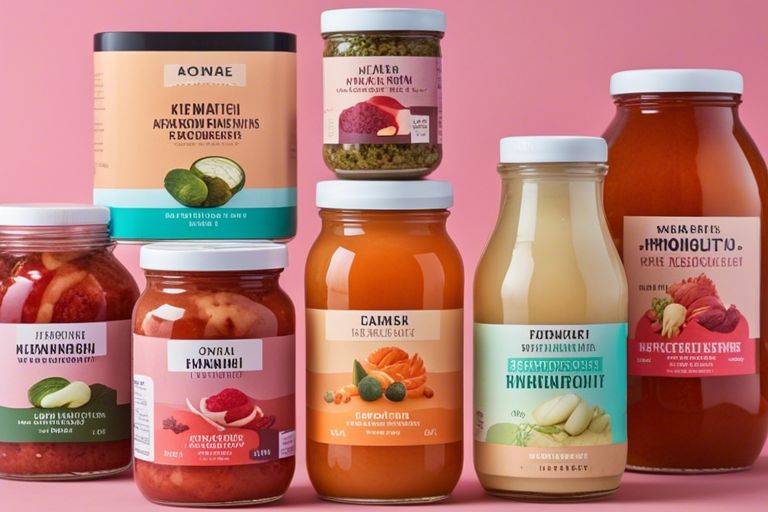
Fermented Foods vs. Probiotics Supplements: A Comparison
KeepInformation
| Fermented Foods | Probiotics Supplements |
|---|---|
| Contains a variety of beneficial bacteria strains | May contain a limited number of strains |
| Rich in enzymes and organic acids that support digestion | May lack additional digestive support compounds |
Bioavailability and Absorption
OnBioavailability
Fermented foods are rich in live bacteria that are more likely to survive through the digestive system and reach the gut alive, enhancing their effectiveness. On the other hand, probiotic supplements might have lower survival rates due to factors like stomach acid.
Cost-Effectiveness
Bioavailability
Fermented foods like kimchi, sauerkraut, and kefir can be easily made at home, saving you money in the long run compared to buying probiotic supplements regularly. Investing in the ingredients for homemade fermented foods can be more cost-effective than purchasing supplements.
Fermented
Additionally, fermented foods provide a range of imperative nutrients beyond probiotics, making them a more economical choice for overall health benefits.
Taste and Enjoyment
Any
Regarding taste and enjoyment, fermented foods offer a diverse range of flavors and textures that can enhance your meals. From tangy kimchi to creamy kefir, incorporating a variety of fermented foods can make your diet more exciting and enjoyable.
The
Moreover, the satisfaction of creating and enjoying your homemade fermented foods adds to the overall experience, making it a fulfilling and rewarding practice for your health and well-being.

The Gut-Brain Connection
The Microbiome’s Influence on Mood
Mood can be greatly influenced by the health of our gut. The microbiome, the community of bacteria living in our intestines, plays a crucial role in producing neurotransmitters that regulate mood, such as serotonin and dopamine. When the microbiome is imbalanced, it can lead to mood disorders like anxiety and depression.
Fermented Foods and Neuroplasticity
Neuroplasticity, the brain’s ability to form and reorganize synaptic connections in response to learning and experience, is positively impacted by consuming fermented foods. These foods contain probiotics that can enhance brain function and promote cognitive flexibility.
Influence: Fermented foods like kimchi, sauerkraut, and kefir have been shown to support the growth of beneficial gut bacteria, which in turn can improve neurotransmitter production and support overall brain health.
The Gut-Brain Axis and Overall Health
Any disruption in the gut-brain axis, the bidirectional communication network between the gut and the brain, can have profound effects on overall health. Digestive issues, mood disorders, and even neurological conditions can stem from an imbalance in this crucial connection.
It: is crucial to nurture a healthy gut with fermented foods to maintain a robust gut-brain axis, which is vital for optimal physical and mental well-being. By choosing fermented foods over probiotic supplements, you are not only supporting your gut health but also fostering a strong foundation for overall vitality.
Incorporating Fermented Foods into Your Diet
Start Small: Begin with Fermented Vegetables
Not sure where to begin with incorporating fermented foods into your diet? Start small by adding fermented vegetables like sauerkraut or kimchi to your meals. These probiotic-rich foods can easily be included as a side dish or topping to your favorite dishes.
Explore Fermented Dairy and Meat Options
One way to explore fermented foods further is to incorporate fermented dairy and meat options like kefir or salami into your diet. These options provide a diverse range of probiotics and can add a delicious twist to your meals.
Explore the world of fermented dairy and meat to find options that suit your taste preferences and dietary needs. Experiment with different types of cheeses, yogurts, and cured meats to see what works best for you.
Get Creative with Fermented Grains and Legumes
With fermented grains and legumes, you can add a nutritional boost to your meals while enjoying the benefits of probiotics. Try incorporating fermented options like tempeh or sourdough bread into your diet to diversify your sources of these beneficial bacteria.
Fermented grains and legumes not only provide probiotic benefits but also enhance the digestibility and nutrient absorption of these foods. Get creative in the kitchen and experiment with different fermented grain and legume products to reap the rewards of these traditional foods.
To wrap up
Considering all points, I choose fermented foods over probiotic supplements for their natural and diverse microbial profile, which could benefit my overall health in a more holistic way. By incorporating foods like kimchi, sauerkraut, and yogurt into my diet, I not only support my gut health but also enjoy delicious and nutritious culinary experiences. So, next time you’re looking to boost your probiotic intake, why not reach for a serving of tangy kefir or a crunchy batch of homemade pickles? Your taste buds and your gut will thank you!
FAQ
Q: Why should I choose fermented foods over probiotic supplements?
A: Fermented foods are natural sources of probiotics that provide a wider variety of beneficial bacteria strains compared to supplements. They also offer additional nutrients and enzymes that support digestion and overall health.
Q: What are some examples of fermented foods that I can incorporate into my diet?
A: Examples of fermented foods include yogurt, kefir, sauerkraut, kimchi, miso, tempeh, and kombucha. These foods can easily be added to your meals and snacks to boost your probiotic intake.
Q: How do fermented foods help improve gut health?
A: Fermented foods introduce beneficial bacteria into the gut, which can help restore the balance of microbiota, improve digestion, support the immune system, and enhance nutrient absorption.
Q: Are there any risks associated with consuming fermented foods?
A: In general, fermented foods are safe for consumption. However, individuals with specific health conditions or compromised immune systems should consult with a healthcare provider before adding large quantities of fermented foods to their diet.
Q: Can I still take probiotic supplements if I consume fermented foods regularly?
A: Yes, you can still take probiotic supplements in addition to consuming fermented foods. This combination can provide a diverse range of beneficial bacteria strains to support your gut health.
Q: How can I incorporate more fermented foods into my diet?
A: You can start by slowly introducing small amounts of fermented foods into your meals, such as adding yogurt to smoothies, topping salads with sauerkraut, or enjoying a serving of kimchi as a side dish.
Q: Are fermented foods suitable for individuals with lactose intolerance or dairy allergies?
A: Fermented dairy products like yogurt and kefir are often well-tolerated by individuals with lactose intolerance because the fermentation process breaks down much of the lactose. For those with dairy allergies, there are non-dairy options like coconut yogurt or fermented vegetables to consider.
